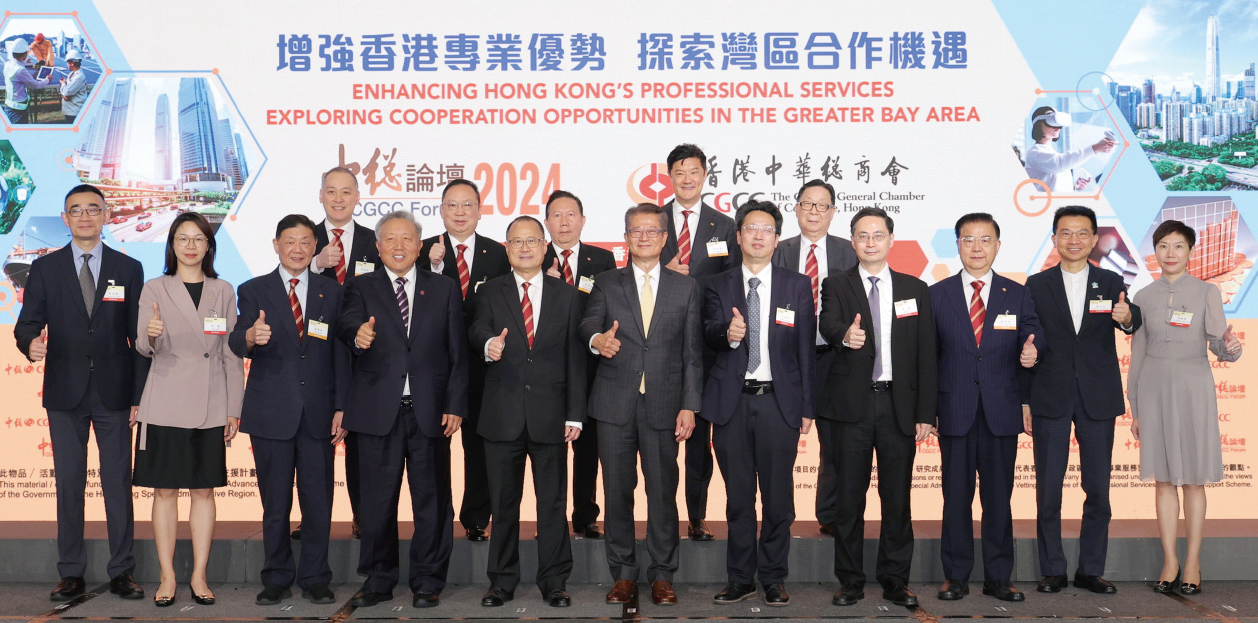
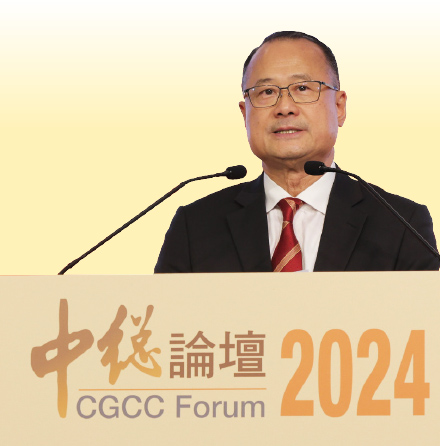 Jonathan Choi:
Jonathan Choi:Leverage strengths to promote new quality productive forces
Jonathan Choi, the Chamber’s Chairman, said that this year’s “Two Sessions” has put “accelerating the development of new quality productive forces” as the top priority, which shows the Central Government’s determination for innovation. Hong Kong can join hands with the Guangdong-Hong Kong-Macao Greater Bay Area (Greater Bay Area) to build a leading international scientific research platform and play an important role in promoting the country’s development of green finance.
This year’s government work report clearly mentioned supporting the Greater Bay Area in “better playing its role as a driver of high-quality development” and supporting Hong Kong in leveraging its strengths and features to participate in the development of the Greater Bay Area. Hong Kong must leverage its distinctive strengths to collaborate with other Greater Bay Area cities to act as a vanguard in the country’s development of new quality productive forces.
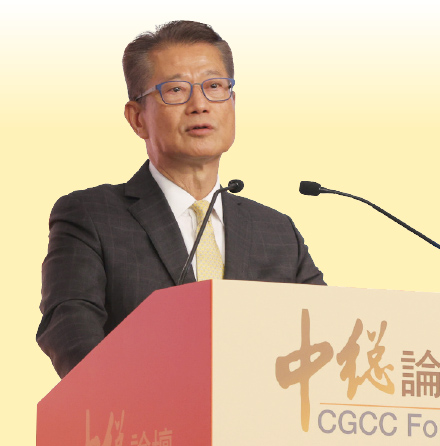 Paul Chan:
Paul Chan:Hong Kong should embrace green and digital economies for future development
When explaining the performance of the “troika” driving Hong Kong’s economy, Paul Chan, Financial Secretary, said that exports increased in the first quarter of this year, and the number of tourists visiting Hong Kong is expected to reach 50 million this year. Several large-scale events will be held during the year, and with the increase in local household income, will strongly support the local consumer market.
Chan said that green economy and digital economy will become major trends in global economic development. He stressed that these are the two major directions for Hong Kong’s future development. He further said that with Hong Kong’s financial sector facing intense competition, the HKSAR Government is constantly striving to enhance its financial competitiveness. Some measures recently announced by the China Securities Regulatory Commission to support Hong Kong will help boost liquidity in the entire market. Chan believes that Hong Kong can secure Mainland and international funds in the process as it is the preferred platform for Mainland enterprises to go global and raise funds internationally. Going forward, the HKSAR Government will strive to continuously improve the content of interconnection to facilitate more Mainland funds to come to Hong Kong.
Regarding strengthening the development of I&T industries, Chan said 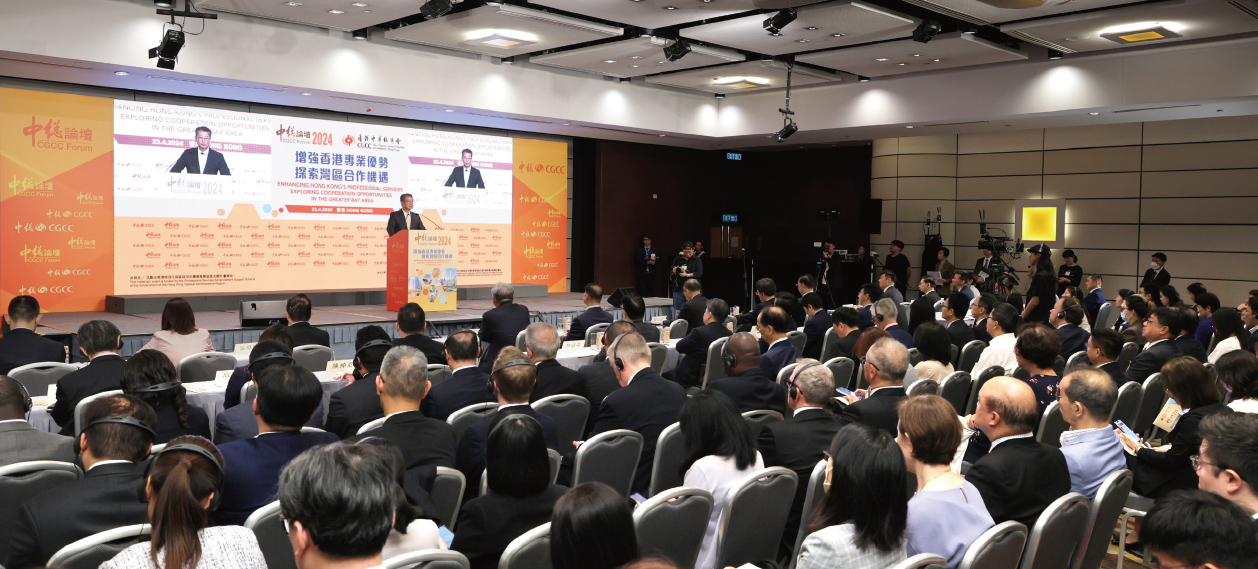 that Hong Kong should strengthen its close cooperation with sister cities in the Greater Bay Area, using the Lok Ma Chau Loop as an important carrier for Hong Kong-Shenzhen I&T cooperation to attract more key I&T enterprises. In Chan’s view, amid changes in the layouts of global industries and production capacities, Hong Kong can serve as a centre for supply chain management and trade financing in the process, leveraging its strengths in professional services to help them go global.
that Hong Kong should strengthen its close cooperation with sister cities in the Greater Bay Area, using the Lok Ma Chau Loop as an important carrier for Hong Kong-Shenzhen I&T cooperation to attract more key I&T enterprises. In Chan’s view, amid changes in the layouts of global industries and production capacities, Hong Kong can serve as a centre for supply chain management and trade financing in the process, leveraging its strengths in professional services to help them go global.
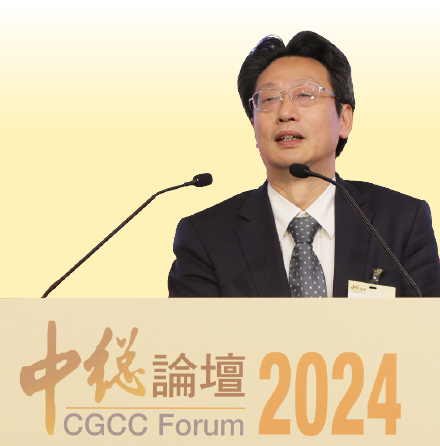 Forge consensus to write a new chapter in Greater Bay Area development
Forge consensus to write a new chapter in Greater Bay Area development
Wang Changlin, Vice President of the Chinese Academy of Social Science, said that national policy support has brought huge development opportunities to the Greater Bay Area. The Greater Bay Area plays a crucial role in fixing the country’s shortcomings in opening-up, cultivating new forms of business and new models, and promoting cross-boundary flow of elements of innovation. Western countries curbing the development of high-tech industries in the Mainland and the lack of truly free flow of elements of innovation have posed many challenges to the Greater Bay Area’s development.
He said that the Greater Bay Area must make itself into an ideal testing ground for the country to deepen reform and opening-up, steadily expand institutional opening-up, accelerate the construction of a “digital Greater Bay Area”, improve the level of market integration, and smoothen dual circulation.
Hong Kong needs to expand its global cooperation network to attract a pool of global innovation elements. Hong Kong must also leverage the Hetao Shenzhen-Hong Kong Science and Technology Innovation Cooperation Zone to promote cross-boundary flow of innovation resources, institutional interconnection and people-to-people exchanges in the Greater Bay Area. It must also promote the upgrading of the Greater Bay Area’s industrial chain, and create an international sci-tech innovation centre and advanced manufacturing chain cluster.
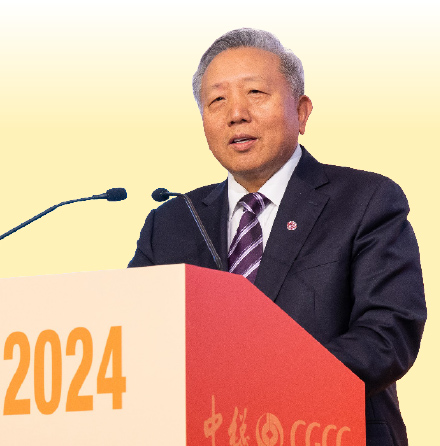 Wu Xiaoqiu:
Wu Xiaoqiu:
Hong Kong helps the country become financial power
Wu Xiaoqiu, Director of National Research Institute of Finance at Renmin University of China, pointed out that the country needs to have three major features and two pillars for it to become a financial power. The first feature is highly market-oriented finance, and the country needs to continuously promote market diversity, innovation and technological progress in finance to enhance competitiveness. The second is legalization of finance, because a sound legal system is the source of investment confidence and expectations. The third is internationalized and open financial markets to attract foreign funds.
The two pillars are RMB internationalization and capital markets. He said that the country is constantly constructing and improving the legal basis for RMB internationalisation, as well as finding a balance between promoting RMB internationalisation and the security of China’s foreign exchange reserves. At the same time, the country is also committed to promoting the development of its capital markets, striving to allow more existing assets to be expressed in the form of financial assets, and to increase the influence of the RMB in the world.
He stressed that Hong Kong provides important experience and reference for the country to achieve Chinese-style modernisation and become a financial power. Therefore, maintaining Hong Kong’s prosperity and stability is an important goal of the country.

Hong Kong’s Professional Services to Promote Greater Bay Area Development
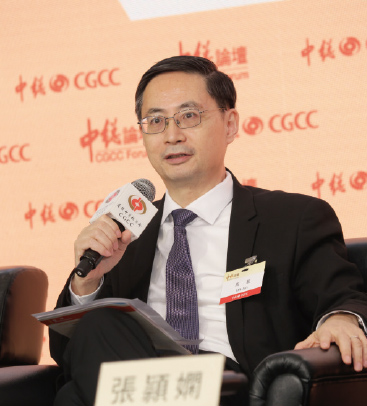 Ma Jun:
Ma Jun:
Hong Kong green finance needs to seek breakthroughs and innovations
Hong Kong raised USD80 billion in green loans or green bonds for local, Mainland and foreign enterprises in 2022. Ma said that such a scale is very large for the size of Hong Kong’s economy. He believes that Hong Kong can make breakthroughs and innovations in the following three aspects in the field of green finance in the future.
The first is transition finance. Since more and more high carbon emitting enterprises and economic activities are expected to need green transition in the future, the funds they will require must be resolved through transition finance. Ma said that Hong Kong can assist enterprises in planning for transition according to international standards.
Ma expects that there is still huge room for development in green technology R&D. He suggested the HKSAR Government support the setting up of a fund of funds for green technology, establishment of green accelerators and incubators, and creation of a platform for matching with green projects and green funds.
Regarding green finance, Ma believes that Hong Kong has announced its adoption of the disclosure requirements set by the International Sustainability Disclosure Standards Board. Hong Kong has many ESG experts who can provide relevant services to Mainland and foreign enterprises.
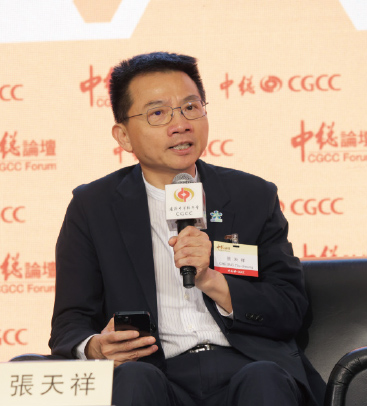 Cheung Tin-cheung:
Cheung Tin-cheung:
Hong Kong economy drives green buildings in Greater Bay Area
Cheung said that the Hong Kong Green Building Council is committed to promoting the standard and development of sustainable buildings in Hong Kong. It also formulates practical guidelines and rating schemes for the industry and different sectors, providing some successful cases and different solutions in Hong Kong. The Council has also launched an assessment tool “BEAM Plus” that covers the entire building development cycle.
The “14th Five-Year” Plan stated that new urban buildings will have to fully conform to green building standards. The Greater Bay Area is at the forefront of green buildings in the Mainland and Hong Kong has leading advantages in many projects. Hong Kong can also participate in the formulation of green building standards in the Greater Bay Area, as well as introducing Hong Kong’s experience and talents.
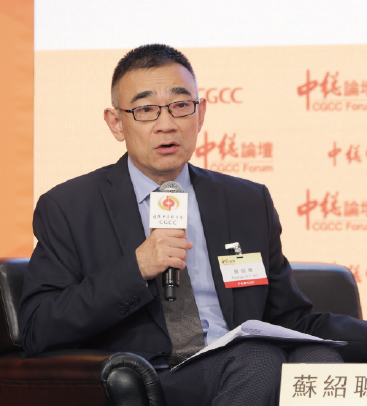 Thomas So:
Thomas So:
Promote law technology and Greater Bay Area collaboration
So pointed out that the “14th Five-Year” Plan and the Outline Development Plan for the Guangdong-Hong Kong-Macao Greater Bay Area have established Hong Kong’s status as an international legal and dispute resolution centre. The Department of Justice has taken the lead in holding the Greater Bay Area Joint Conference to facilitate collaboration and integration of judicial and legal practices between Hong Kong and the Greater Bay Area. It is expected that a Greater Bay Area dispute resolution platform would be established this year.
So said that eBRAM can provide enterprises with effective, one-stop online operations to save money and time, as well as keep data confidential. He stressed that all court proceedings are conducted online, and it has a collaborative platform for dispute resolution institutions in the Greater Bay Area to work together. eBRAM has also invited relevant institutions from nine Guangdong cities and Macao to join in, further promoting cooperation in legal and arbitration matters in the Greater Bay Area.
 Ivy Cheung:
Ivy Cheung:Enhance professional strengths and explore opportunities in Greater Bay Area
Cheung said that Hong Kong accountants can provide professional service support for promoting the application of technologies such as big data and artificial intelligence to help cultivate new quality productive forces in the Greater Bay Area. Hong Kong accountants can introduce Hong Kong’s experience in regulating virtual asset transactions to the Greater Bay Area. They can also provide financial consulting as well as risk assessment and management services to assist enterprises in analysing global trends and formulating strategies to achieve better development amid the reorganisation of global industrial chains.
For Hong Kong accountants to practise in the Greater Bay Area, Hong Kong must regularly review the mutual recognition of accounting qualifications with the Mainland to provide more opportunities for the industry. The industry must also be familiar with the country’s development direction to improve its scope.
Shan Wu:
Greater Bay Area collaboration and complementarity and explore huge biomedicine market
Biomedicine, which has attracted a significant increase in discussions in recent years, is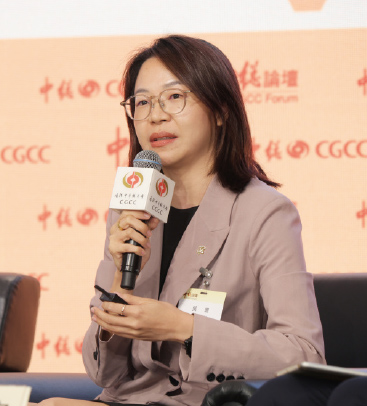 expected to have its market size reaching USD1.7 trillion this year. Wu said that the importance of biomedicine has become more significant as the global population structure ages rapidly. As a result, the industry is growing steadily and has abundant market opportunities.
expected to have its market size reaching USD1.7 trillion this year. Wu said that the importance of biomedicine has become more significant as the global population structure ages rapidly. As a result, the industry is growing steadily and has abundant market opportunities.
Wu said that in terms of biomedicine development, Hong Kong has international resources, highly professional academic research and strong databases, while the Mainland has medical industry advantages and human resources. The two sides can actively enhance collaboration with each other. For example, they can encourage more biopharmaceutical start-ups to domicile in Hong Kong and the Greater Bay Area, while expanding cooperation between Hong Kong and the Mainland on all fronts in the fields of medicine and biotechnology. She suggested the Mainland and the HKSAR Government strengthen policy support measures to help enterprises conduct R&D and increase cross-boundary flow of data in the Greater Bay Area.




